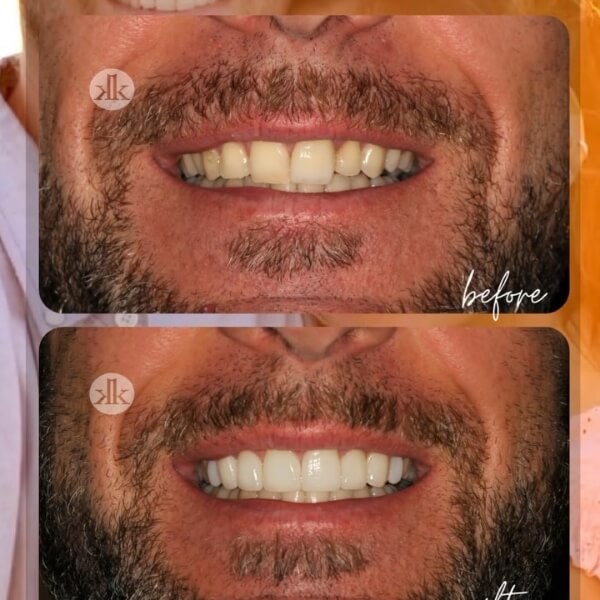You know good oral hygiene is important for a healthy, beautiful smile, but did you know the benefits of oral health may be much more far-reaching? Scientists have uncovered a number of links between taking care of your mouth and taking care of your body. In fact, oral health has even been linked to your mental health in numerous studies. Because the staff at La Jolla Cosmetic Dentistry cares about your whole health and well-being, we have some basic facts for you about the association between proper oral hygiene and other health issues.
Oral Health and Physical Health
There are a number of ways oral health may be connected to physical health, according to a myriad of studies. Some of the specific medical conditions that might be related to oral health include:
Kidney Disease
A new study has found that severe periodontal disease increases the risk of death in patients with chronic kidney disease. The study, which was published in the Journal of Clinical Periodontology in February found the 10-year death rate for patients with both chronic kidney disease and gum disease was 41 percent. In contrast, the rate of death for patients without gum disease was just 32 percent.
Kidney disease can also lead to oral health problems, including bad breath, dry mouth, and increased plaque. This makes good oral hygiene even more important for those suffering with chronic kidney disease, to maintain good oral health and good health overall.
Cardiovascular Disease
Evidence suggesting a link between gum disease and cardiovascular disease dates back more than a century, according to the American Heart Association. Recent research from Karolinska University Hospital in Sweden found that patients with periodontal disease had a 28-percent increased risk for myocardial infarction or heart attack. However, the actual causation could not be determined from this particular study.
Scientists have also found an association between chronic gum infections and coronary heart disease. Studies have also shown people with gum disease have nearly twice the risk for heart disease.
Stroke
A higher risk of stroke may also be linked to poor oral health. Researchers have determined that people missing teeth or who have suffered a significant amount of bone loss around the teeth may be at a higher risk for stroke. The reason is that these people are more likely to develop atherosclerotic plaques, which can lead to stroke.
Another study found that stroke patients with a certain type of bacteria known as streptococcus mutans in the saliva were at a higher risk for intracerebral hemorrhages and cerebral microbleeds. These types of stroke involve the rupture of blood vessels in the brain and are more closely associated with dementia than strokes involving a blockage of a single blood vessel, known as ischemic strokes.
Diabetes
Research has also shown a distinct link between gum disease and diabetes. First, gum disease may increase blood sugar levels, which could in turn intensify the symptoms of diabetes. Gum disease could also affect the body’s metabolic rate and set the stage for pre-diabetes, which greatly increases the risk that diabetes will actually develop. People diagnosed with diabetes may also be at greater risk for developing periodontal disease, which leads to a greater need for excellent oral hygiene habits to keep the teeth and gums as healthy as possible and ward off those risks.
Oral Health and Mental Health
Physical health is not the only factor affected by good oral hygiene and positive oral health. Periodontal disease has also been associated with some mental health disorders, particularly clinical depression. Depression is one of the most diagnosed mental health disorders in the United States today, impacting as many as 14.8 million American adults. Depression can be a debilitating illness, affecting your ability to perform daily tasks and negatively impacting your quality of life.
A 2010 study found significant associations between oral health, depression and quality of life. The link between the two may be multi-faceted. First, depression can lead to teeth clenching and grinding, which can increase the risk for periodontal disease. Depression also increases levels of the stress hormone cortisol in the body, which could in turn create a ripe environment in the mouth for periodontal disease.
Depression can suppress the immune system, which may make it hard for your body to fight off bacteria in the mouth that can cause infection. Depression often results in poor eating habits that directly impact the health of your entire body, including your teeth and gums. At the same time, the symptoms associated with depression like sadness, fatigue and loss of motivation could affect how well you care for your teeth, which could lead to periodontal disease over time. Even the medications used to treat depression can dry out the mouth and less saliva means less protection for your teeth and gums. This is why people with chronically dry mouths tend to have a higher incidence of periodontal disease.
Because there is such a compelling link between oral and mental illness, dentists will often inquire about your medical health history to ensure you are receiving the oral care you need the most. At the same time, your dentist might be one of the first to realize you are suffering with a mental illness like clinical depression, since sudden changes in the mouth like tooth decay, teeth grinding or gum disease might indicate the onset of an illness.
Your healthy smile does much more than enhance your appearance and increase your self-confidence. The healthy habits you use to retain that bright smile may also benefit your body and mind in a myriad of ways. Oral hygiene is an important part of any healthy regimen, both now and in the future. To learn more about how to keep your mouth and teeth as healthy as possible, contact La Jolla Cosmetic Dentistry today at 858-295-0603.









